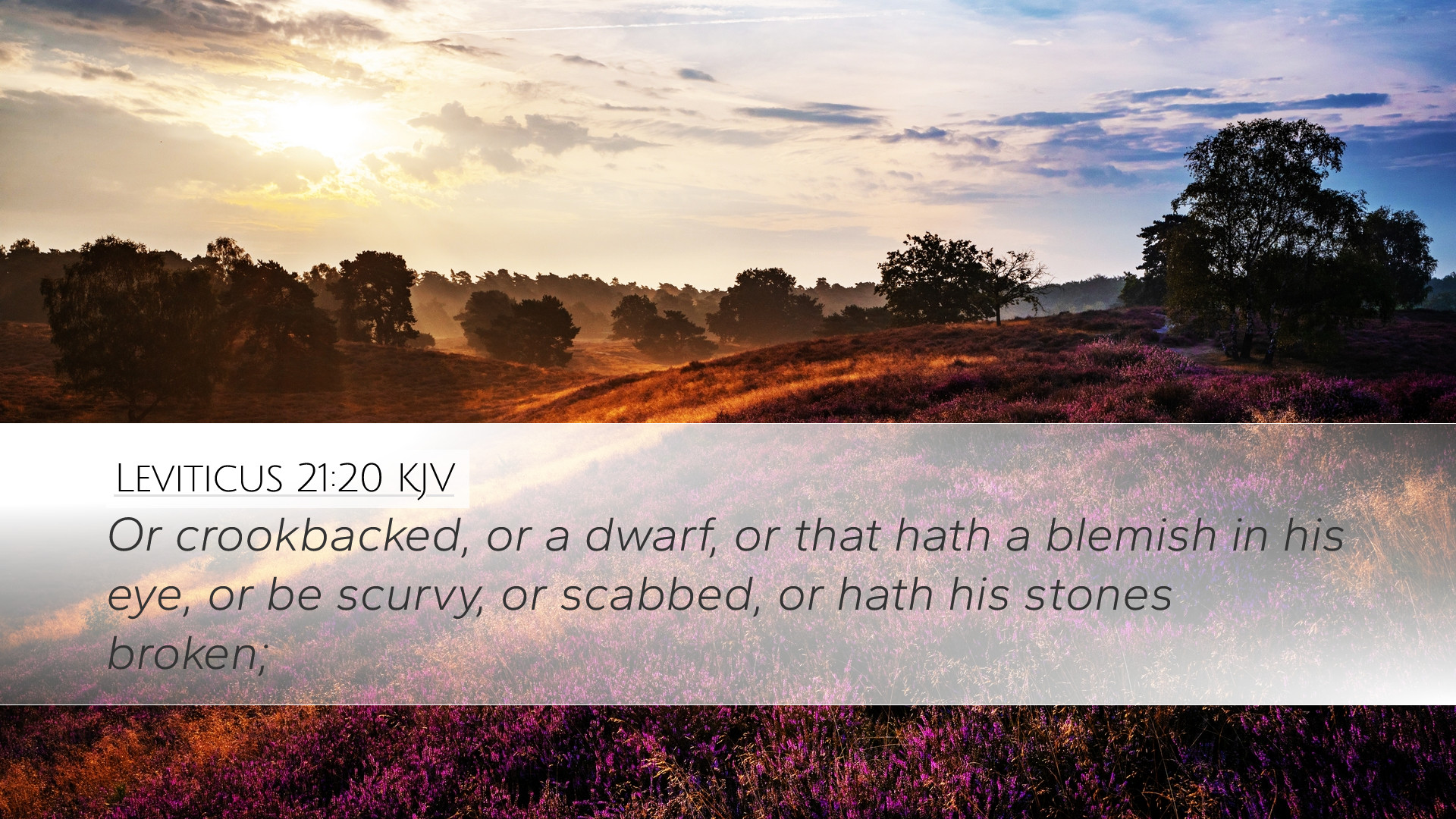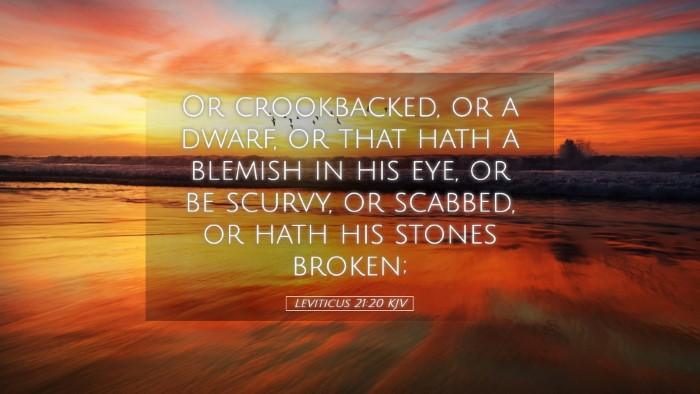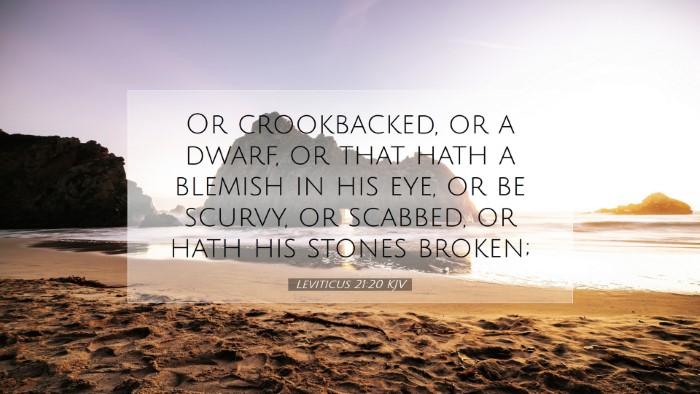Commentary on Leviticus 21:20
Bible Verse: Leviticus 21:20 - "Or a man that is broken-footed, or broken-handed, or crook-backed, or a dwarf, or that hath a blemish in his eye, or be scurvy, or scabbed, or hath his stones broken."
Introduction
Leviticus 21:20 sits within the broader context of the holiness codes delineated for the priests in the ancient Israelite community. This verse specifically outlines physical disqualifications that would prevent individuals from performing priestly duties. Each stipulation carries significant theological implications, informing not just ancient practices, but also contemporary discussions on holiness, service, and the nature of God’s requirements.
Historical Context
This chapter of Leviticus outlines the qualifications for priests, emphasizing the need for personal holiness and physical wholeness. The priesthood in ancient Israel was not merely a functionary role; it was a calling to represent God to the community and to mediate between God and the people. The laws presented in this verse illustrate the gravity and seriousness with which the offerings and duties were regarded.
Commentary Insights
Matthew Henry's Perspective
Matthew Henry explores the significance of physical perfection in Levitical service. He emphasizes that these regulations should not lead one to a harsh view of God, but rather showcase God's desire for a community that reflects His holiness. Henry draws a correlation between the physical state of the priests and the spiritual fidelity they were expected to maintain. He argues that such distinctions illustrate the importance of being 'whole' in the Lord’s service.
Albert Barnes' Interpretation
Albert Barnes provides a detailed analysis, explaining that the disqualifications mentioned relate not only to physical blemishes but also metaphorically to moral or spiritual deficiencies that might hinder one's ability to serve God effectively. He points out that the call to priesthood represents a higher standard of holiness. In this light, Barnes proposes that the core requirement is to represent divine holiness and purity, and hence the disqualified must not bear any moral blemish either.
Adam Clarke's Exegesis
Adam Clarke dives deeper into the specific ailments and their cultural significance at the time. He notes that ‘crook-backed’ and ‘dwarf’ denote abnormalities that were seen as imperfections. Clarke elaborates on the social implications of these traits, suggesting that in a culture that valued physical strength and beauty, these individuals symbolized human frailty. This illustrates the grace of God in choosing servants from diverse backgrounds and brings forth the expectation that spiritual integrity exceeds physical attributes.
Theological Implications
The specific prohibitions in Leviticus 21:20 raise important questions about the nature of purity and service before God. They compel modern readers to ponder how God perceives imperfections in both character and form. Here are some key theological insights:
- Holiness and Service: The emphasis on a perfect priesthood reflects the higher calling of believers today to pursue holiness.
- Grace and Qualification: While the physical standards set a high bar, they also serve to highlight God's grace in Christ, who fulfills all that the law signifies.
- Community and Wholeness: The call to be a holy nation (Exodus 19:6) extends beyond individual perfection to communal integrity and wholeness.
Applicational Reflections
For pastors, students, and scholars alike, this passage challenges us to reflect on our own lives and ministries. What does it mean to serve God with our whole selves? How do our personal 'blemishes' affect our ministry? The drive toward holiness invites a continuous journey of self-examination and repentance.
Additionally, as one considers the various disqualifications, it becomes evident that God is interested not only in outward appearances. His desire is for a pure heart and a commitment to following His commandments wholeheartedly, urging believers to look beyond the tangible to the heart of their worship and fellowship.
Conclusion
In conclusion, Leviticus 21:20 serves as a profound reminder of God’s standards for holiness in service. Through careful examination of various public domain commentaries, we gain insight into the need for purity, grace, and reverence in our spiritual lives. This passage encourages all those serving in any capacity to strive for a life that reflects God's holiness and to engage with His grace in the face of human imperfection.


